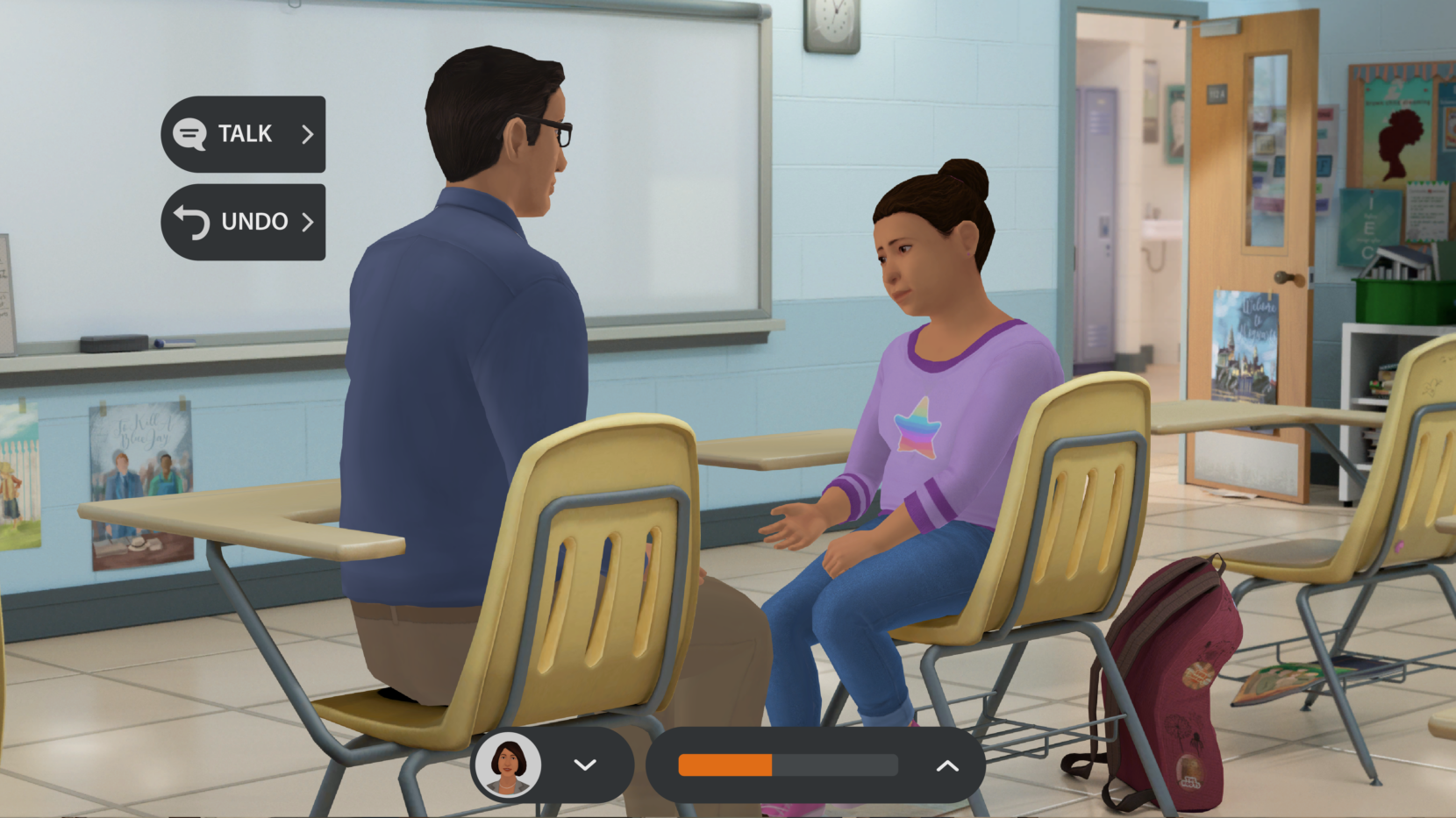How Miami Schools Are Responding To Student COVID-19 Trauma with Remote Training for School Staff
Miami-Dade County Public Schools (M-DCPS), the nation’s fourth largest school district, is responding to concerns about student distress during the COVID-19 pandemic by providing all school staff with access to Kognito’s Trauma-Informed Practices for K12 Schools, an innovative training simulation that enables educators to build skills in speaking with students experiencing psychological distress.
M-DCPS’s Mental Health Services division is leading the initiative out of concern for students, who are experiencing a variety of stressors related to the pandemic. As part of this effort, Trauma-Informed Practices has been made available to over 40,000 M-DCPS teachers, administrators, and other school personnel for 12 months beginnong on May 7th, 2020, which is also National Children’s Mental Health Awareness Day. The skills taught in the simulation are instrumental in preparing school staff to create a more responsive and welcoming school climate now and through the fall as the district’s 350,000 students start returning to the classroom.

M-DCPS Assistant Superintendent Sally Alayon leads the Mental Health Services division and was instrumental in the decision to adopt the trauma training based on prior success leveraging Kognito simulations to empower educators. She says the enthusiastic reception from staff and the ease of implementation the District experienced using Kognito’s mental health and suicide prevention series last year – part of a statewide initiative sponsored by the Florida Department of Education – made the decision an easy one.
“When schools went remote, we understood immediately that this would be challenging for our students, families and staff,” said Alayon. “The Kognito platform and product are a perfect solution for this moment in time. We went from idea to launch in about two weeks. The simulations are easy to rollout, highly engaging, and backed by evidence. We expect this training to help staff to respond to students, families, colleagues and most importantly themselves with greater empathy and compassion.”
Trauma-Informed Practices for K12 Schools uses interactive role-play scenarios to help educators and staff better support students. Originally created in partnership with UNICEF USA in response to Hurricane Harvey, it prepares users to spot warning signs of trauma, lead real-life conversations with students, improve their experience in class, and explore making a referral to a mental health professional. The simulation was developed with the expertise of internationally known trauma experts, teachers, counselors, nurses, and other school-based mental health professionals.
As Jennifer Spiegler, Senior Vice President of Strategic Partnerships at Kognito, notes, “Trauma-Informed Practices for K12 Schools will prepare educators to recognize and respond to student behavior that may be the result of trauma or distress.” She added: “Miami-Dade County Public Schools is responding to a critical need and taking decisive action that will promote a quicker recovery and a softer landing from this crisis. It is a privilege to witness the rapid decision-making and nimble teamwork of Ms. Alayon and her colleagues in the Mental Health Services division.”
The adoption of trauma-informed training in response to COVID-19 comes on the heels of several M-DCPS district initiatives to address student mental health. In July 2018, the district established the Department of Mental Health Services, whose mission is to promote students’ social-emotional and academic well-being through the highest quality of school and community comprehensive, evidence-based mental health services. Districtwide activities include hiring mental health coordinators, strengthening community resources, mental health curricula for students, and professional development for administrators, educators, and staff.
“As a school district, we provide education, but there are so many factors that contribute to a student’s ability to succeed. The mental health of our students and families is always a priority, especially now,” says Alayon.
